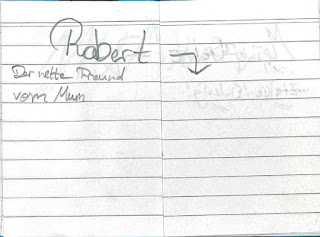...zufällige Gedanken zu verschiedenen Themen, die nicht nur mit Hannover, Musik, Punk, Politik zu tun haben ...
20.5.25
Ina May - Oldhorster Moor
18.5.25
16.5.25
14.5.25
Front (Hamburg 1981)
Front: The Lost Tapes. For decades, it was the phantom album - the one that might have been, could have been, but never was. Whispers of its existence have haunted the stories of a time when German music stood at the precipice of reinvention, embracing a wild sense of new beginnings. The mystery of Front fit the mood perfectly. No interviews, no photos, no spotlight, just music, as elusive as the band itself. As with so many stories in pop music, the roots of this one stretch back to England, late 1970s. Punk had exploded, ripping through rock’s conventions and leaving space for something new. They called it post-punk, a name almost too clean for the unpolished energy it unleashed. Across the Channel in West Germany, cities like Berlin, Düsseldorf, and Hamburg became laboratories for a sonic avant-garde. In rehearsal rooms and on underground stages, bands searched for sounds that could challenge, provoke, and inspire.
It was in this atmosphere that Front emerged, forged from the remnants of Hamburg punk ban d Coroners. The lineup: Joern Zimmermann (vocals), Godehard Buschkühl (guitar), Ralf Hertwig (drums), and Jürgen Keller (bass). Their output was fleeting but unforgettable. Seven tracks a single, Alternative City West; an EP, Georg; and a contribution (Blech und Liebe) to the cult compilation Lieber Zuviel Als Zu Wenig — all released on Hamburg’s legendary Zickzack label. What made Front special was their uncanny ability to sound unbound by geography or time. Drawing from the kinetic energy of Manchester’ s clubs, the gritty cool of New York’s underground, and their own German precision, they blended funk, dub, and new wave into something irresistibly danceable, daring, and sophisticated. Rhythms were meticulously refined, the studio became an instrument, and their lyrics opened a new frontier of style and delivery. Even the great John Peel counted himself a fan. And then, silence. In the summer of ’81, guitarist Büschkühl departed. The remaining trio pressed on, planning a debut album for autumn of that year, as hinted in the liner notes of Lieber Zuviel Als Zu Wenig. But before the album could materialize, Front simply disappeared. No farewell, no dramatic split. They were gone, like a ship lost in fog. The truth? There was no dramatic collapse. No feuds, no betrayal. It was simply the nature of the scene. Bands were fluid, musicians drifted from one project to another. Keller found his way to Andreas Dorau and Holger Hiller’s early solo work. Hertwig joined Palais Schaumburg. Zimmermann hit the road with Dorau. Somewhere along the way, Front slipped through the cracks, leaving behind nothing but a few enigmatic records and a growing mythology.
The Resurrection. Forty years passed. The surviving members were having dinner with Andreas Dorau when the conversation turned to Front. Godehard Buschkühl, their guitarist, had recently passed away, and the mood was heavy. Then Dorau spoke up: That album. It has to finally be released. The words sparked a search. Zimmermann unearthed an old, dusty reel of tape — a forgotten multitrack recording from 1981, captured on a Grundig TK845. The same pioneering technique that allowed the Beatles to layer sound had preserved Front’s lost demos in their raw, unpolished glory. What followed was a painstaking two - year restoration effort. The band pieced the album together, track by track. Toward the end, AI technology stepped in, helping refine the fragile audio while preserving its analog soul. What emerged wasn’t just a collection of songs; it was a time capsule, a glimpse into the moment when Front was poised to change everything before vanishing. And now, after all these years, Front’s long rumored album is here. Fresh, urgent, and full of the restless energy that defined an era. But this album isn’t just a resurrection; it’s a revelation. It’s proof that even the most fleeting bands can leave behind something eternal. Is this the end of Front’s story, or the beginning of a new chapter? Who knows?
12.5.25
Ist Musik älter als die Menschheit? – Schimpansen trommeln rhythmisch
Musik zu machen ist grundlegender Bestandteil des Menschseins, aber seit wann gibt es eigentlich Musik? Die Ergebnisse einer aktuellen Studie deuten darauf hin, dass Musizieren bereits älter als die Menschheit sein könnte. Denn: Forscher*innen der Universität Wien, der Universität St. Andrews und der Sapienza Universität Rom konnten nun zeigen, dass auch Schimpansen beim Trommeln einem Rhythmus folgen und einzelne Gruppen sogar unterschiedliche Rhythmen verwenden. Wir Menschen teilen einen entscheidenden Baustein der Musikalität mit Schimpansen: rhythmisches Trommeln. Die Ergebnisse wurden aktuell in der renommierten Fachzeitschrift Current Biology veröffentlicht.















